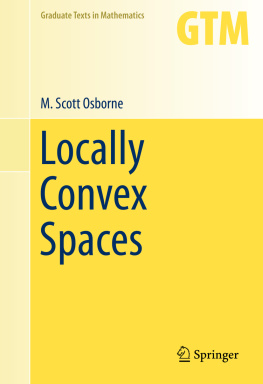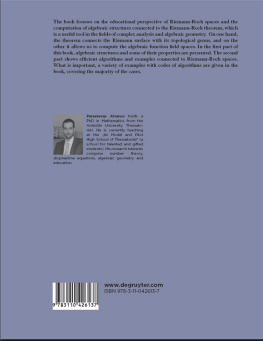Spaces of Capital / Spaces of ResistanceGEOGRAPHIES OF JUSTICE AND SOCIAL TRANSFORMATION
SERIES EDITORS
Nik Heynen, University of Georgia
Mathew Coleman, Ohio State University
Sapana Doshi, University of Arizona
ADVISORY BOARD
Deborah Cowen, University of Toronto
Zeynep Gambetti, Boazii University
Geoff Mann, Simon Fraser University
James McCarthy, Clark University
Beverly Mullings, Queens University
Harvey Neo, National University of Singapore
Geraldine Pratt, University of British Columbia
Ananya Roy, University of California, Los Angeles
Michael Watts, University of California, Berkeley
Ruth Wilson Gilmore, CUNY Graduate Center
Jamie Winders, Syracuse University
Melissa W. Wright, Pennsylvania State University
Brenda S. A. Yeoh, National University of Singapore
Spaces of Capital / Spaces of Resistance
MEXICO AND THE GLOBAL POLITICAL ECONOMY
CHRIS HESKETH
2017 by the University of Georgia Press
Athens, Georgia 30602
www.ugapress.org
All rights reserved
Set in 10/12.5 Minion Pro by Graphic Composition, Inc., Bogart, Georgia
Most University of Georgia Press titles are available from popular e-book vendors.
Printed digitally
Library of Congress Cataloging-in-Publication Data
Names: Hesketh, Chris, 1981 author.
Title: Spaces of capital/spaces of resistance : Mexico and the global political economy / Chris Hesketh.
Description: Athens : University of Georgia Press, [2017] | Series: Geographies of justice and social transformation ; 37 | Includes bibliographical references and index.
Identifiers: LCCN 2017014292 | ISBN 9780820351742 (hardback : alk. paper) | ISBN 9780820352848 (pbk. : alk. paper) | ISBN 9780820351759 (ebook)
Subjects: lcsh: Economic developmentPolitical aspectsMexico. | Economic developmentPolitical aspectsLatin America. | Geopolitics. | Space in economics. | EconomicsSociological aspects.
Classification: LCC HC 135 . H 4534 2017 | DDC 330.972/7dc23 LC record available at https://lccn.loc.gov/2017014292
For my grandma and grandpa
CONTENTS
ACKNOWLEDGMENTS
This book would not have been possible without the support, advice, and company of a number of people.
I would like to gratefully recognize the support of the Economic and Social Research Council ( ESRC ) studentship that funded the initial research (ref: ES / F 005377/1). Publishers permission to draw from the following material was gratefully received: From passive revolution to silent revolution: Class forces and the production of state, space and scale in modern Mexico, Capital & Class, 34 (3) (2010): 383407; The clash of spatializations: Geopolitics and class struggle in Mexico, Latin American Perspectives, 40 (4) (2013): 7087; Producing state space in Chiapas: Passive revolution and everyday life, Critical Sociology, 42 (2) (2016): 21128.
At the University of Georgia Press I would like to thank Nik Heynan and Melissa Wright for their advice and helpful comments on the project in its earlier stages. Mick Gusinde-Duffy has also been instrumental is seeing the project through to fruition.
In Mexico I would like to thank John Holloway and Gustavo Esteva for their early help in getting my research off the ground. I owe a particular debt of gratitude to Oliver Frhling and Tom Hansen for their invaluable support in helping to provide points of contact and arranging transportation. I would also like to thank all the interviewees, who were very giving of their time. My thanks to the communities of Oaxaca and Chiapas for providing such hospitable and inspiring places from which to conduct research. In (re)presenting your struggles I hope I have done justice to them.
This project was started at the University of Nottingham, where the Centre for the Study of Social and Global Justice ( CSSGJ ) provided a fantastic setting in which to interact with great colleagues and to broaden my intellectual horizons through discussion and debate. Participants in the Marxist reading group helped me clarify my ideas, and I am grateful to all comrades who participated in this fantastic collective enterprise, but I owe particular thanks to Andreas Bieler, Sara Motta, Phillip Roberts, and Cemal Burak Tansel.
A special mention must also be made of Adam Morton. Despite moving to the other side of the world, he has remained fantastically supportive of my work, offering comment, critique, and good humor as and when needed.
At my new home at Oxford Brookes I would like to thank all my colleagues, who often provide much-needed social respite from the rigors of mental labor. In particular, thanks go to Steve Hurt, Mikko Kuisma, Tina Managhan, Victoria Browne, Doerthe Rosenow, and Maia Pal.
I owe a final debt of gratitude to my family. Since this research began, this family has been extended both with nieces and nephews and with my own children. For Molly and Nikhil, now that the book is finished I will look forward to some much-needed time to play. I would like to reserve special thanks for my wife, Sirisha, for her never-ending support and patience. Finally, I would like to dedicate this book to the memory of my grandma and grandpa. Sadly, we lost them before this work was completed, but I know they would have been proud to see it published.
Spaces of Capital / Spaces of ResistanceINTRODUCTION
On January 1, 1994, in the southern Mexican state of Chiapas, an indigenous rebel group calling itself the Ejrcito Zapatista de Liberacin Nacional ( EZLN , Zapatista Army of National Liberation) rose up in response to the governments new economic orientation, which had culminated most visibly with the signing of the North American Free Trade Agreement ( NAFTA ), due to come into effect on that very day. Since then, the Zapatistas have taken over (or recuperated, as they put it) thousands of hectares of privately held lands and constructed an autonomous form of governance. The Zapatistas do not recognize state laws, and they do not accept government programs and money. When one enters Zapatista territory one is greeted with a sign that reads, Aqu, manda el pueblo (Here, the people command).
In the summer of 2006, in another southern Mexican state, Oaxaca, the violent dislodgement of the annual teachers plantn (encampment) led to the creation of a broad collection of social movements, trade unions, and civil society organizations under the banner of Asamblea Popular de los Pueblos de Oaxaca ( APPO , Popular Assembly of the Peoples of Oaxaca). Barricades were erected and public buildings and symbols of power were taken over after a state of ungovernability was declared. Since this time, social movement activism, centered on opposition to neoliberal development projects and localized authoritarianism, has proliferated in Oaxaca. There have also been attempts to reinvent community and reorient development by drawing on the states indigenous cultural practices.
Both of these ongoing cases represent efforts to craft new geographical relations of power. They call into question the legitimacy of the state as the arbiter of social life, as well as the efficacy and desirability of a purely representative form of democracy. Moreover, these cases question the viability of capitalist social relations. In light of such questions, as well as numerous developments within Latin America, Jean Grugels (2002: 170) assertion that the rise of neoliberalism in the region has rendered utopian debates about politics irrelevant seems premature, to say the least. Rather, what we are witnessing is the reinvention of utopia (Motta 2006).









